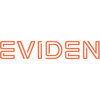Financial Associate
100+ Financial Associate Interview Questions and Answers

Asked in Accenture

Q. Journal entry for cash sales?
Journal entry for cash sales involves debiting the cash account and crediting the sales revenue account.
Debit the cash account to reflect the increase in cash due to the sales
Credit the sales revenue account to record the revenue generated from the sales
The journal entry would typically be: Cash (debit) and Sales Revenue (credit)

Asked in Accenture

Q. What is the journal entry for the provision of bad debts?
The journal entry for provision of bad debts is a debit to Bad Debt Expense and a credit to Allowance for Doubtful Accounts.
Bad Debt Expense is an expense account that represents the amount of uncollectible accounts receivable.
Allowance for Doubtful Accounts is a contra-asset account that reduces the balance of accounts receivable to its net realizable value.
The provision for bad debts is an estimate of the amount of accounts receivable that are expected to be uncollectible.
E...read more
Financial Associate Interview Questions and Answers for Freshers
Asked in NV Shoppe Sales & Marketing

Q. What is the journal entry for bad debts?
Journal entry for bad debts
Debit the bad debt expense account
Credit the accounts receivable account for the amount of the bad debt
If the bad debt has already been written off, credit the allowance for doubtful accounts account instead of accounts receivable
Example: Debit Bad Debt Expense for $500, Credit Accounts Receivable for $500

Asked in Accenture

Q. What is the prudence concept?
Prudence concept is the principle of exercising caution and good judgment in decision-making.
It involves taking a conservative approach to financial management
It requires considering potential risks and uncertainties before making decisions
It is important for ensuring the long-term financial stability of an organization
For example, a company may choose to hold onto excess cash reserves rather than investing them in risky ventures

Asked in Genpact

Q. What are the golden rules of Accounting?
The golden rules of accounting are basic principles that guide the recording of financial transactions.
The first golden rule is the Debit-credit rule, which states that for every debit entry, there must be a corresponding credit entry.
The second golden rule is the Real account rule, which states that all assets have a debit balance and all liabilities have a credit balance.
The third golden rule is the Nominal account rule, which states that all revenue and expense accounts ha...read more

Asked in Infosys

Q. What is the first thing you'll consider while starting a statutory audit?
The first thing to consider while starting statutory audit is understanding the client's business and industry.
Understand the client's business and industry
Identify the key risks and controls
Assess the materiality of the financial statements
Plan the audit approach and procedures
Consider any regulatory requirements or changes
Review prior year's audit work
Communicate with the client and their management team
Financial Associate Jobs




Asked in Infosys

Q. How does the Russia-Ukraine war affect the IT business?
The Russia war has negatively impacted the IT business due to economic sanctions and decreased foreign investment.
Economic sanctions have limited access to technology and equipment needed for IT businesses
Decreased foreign investment has led to a lack of funding for IT startups and projects
The war has also disrupted supply chains and caused instability in the market
Cybersecurity concerns have increased due to potential hacking and data breaches during the conflict

Asked in Stockal

Q. How do you rate your data analysis and business intelligence skills?
I rate myself highly on data analysis and business intelligence skills.
I have a strong background in data analysis and have successfully completed several projects that required in-depth analysis.
I am proficient in using various data analysis tools and software, such as Excel, SQL, and Tableau.
I have a solid understanding of statistical analysis and can effectively interpret and present data-driven insights.
I have experience in developing and implementing business intelligenc...read more
Share interview questions and help millions of jobseekers 🌟


Asked in R.R. Donnelley

Q. Do you know how to use MS Excel?
Yes, I am proficient in using MS Excel for financial analysis and data management.
I have extensive experience in creating and managing spreadsheets for financial modeling and forecasting.
I am skilled in using Excel functions and formulas to perform complex calculations and analysis.
I can create charts, graphs, and pivot tables to visualize financial data effectively.
I am familiar with data manipulation techniques such as sorting, filtering, and conditional formatting.
I have u...read more

Asked in QNet

Q. What are the journal entries for intercompany transactions?
Journal entries for intercompany transactions are used to record financial transactions between two entities within the same company.
Intercompany transactions involve the transfer of goods or services between two entities within the same company.
The journal entry for intercompany transactions involves recording the transaction in the books of both entities.
The debit and credit accounts used in the journal entry will depend on the nature of the transaction.
For example, if Enti...read more

Asked in Avery Dennison

Q. What is strategy and how does it help in managing a company?
Strategy is a plan of action designed to achieve a long-term or overall aim.
Strategy helps in setting clear goals and objectives for the company.
It helps in identifying the strengths and weaknesses of the company and its competitors.
It helps in making informed decisions and allocating resources effectively.
It helps in adapting to changes in the market and staying ahead of the competition.
Examples of successful strategies include Apple's focus on innovation and customer experi...read more

Asked in Blenheim Chalcot

Q. What is the benefit of charging depreciation in the Profit and Loss statement?
Charging depreciation in P&L helps in spreading the cost of an asset over its useful life, matching expenses with revenues.
Depreciation helps in accurately reflecting the wear and tear of assets over time.
It allows for the allocation of the cost of an asset over its useful life, rather than expensing it all at once.
By charging depreciation, the profit and loss statement reflects the true cost of using the asset to generate revenue.
It helps in providing a more accurate picture...read more

Asked in Infosys

Q. What is the book closure process?
Book closure process is the process of closing the register of shareholders to determine the list of shareholders eligible for dividends.
Book closure process is done by companies to determine the list of shareholders eligible for dividends.
During this process, the register of shareholders is closed for a specific period of time.
Only those shareholders who are on the list at the end of the book closure period are eligible for dividends.
Book closure dates are announced in advan...read more

Asked in Stockal

Q. What challenges do you see in financial budgeting, planning, and analysis?
Financial budgeting, planning and analysis face challenges due to changing market conditions, data accuracy, and lack of communication.
Market volatility can affect budgeting and planning
Data accuracy is crucial for effective analysis
Lack of communication between departments can lead to discrepancies
Forecasting future trends can be difficult
Unexpected expenses can disrupt budgeting plans
Inflation and currency fluctuations can impact financial planning
Difficulty in balancing sh...read more

Asked in Jensen Kobain Solutions

Q. What is Trial balance? What is Cash Flow statement? what is EBITDA?
Trial balance is a list of all the accounts in the general ledger with their debit or credit balances. Cash flow statement shows the inflow and outflow of cash. EBITDA is a measure of a company's operating performance.
Trial balance is used to ensure that the total of all debits equals the total of all credits.
Cash flow statement shows the sources and uses of cash during a specific period of time.
EBITDA stands for Earnings Before Interest, Taxes, Depreciation, and Amortization...read more

Asked in R.R. Donnelley

Q. What is working capital, balance sheet, depreciation and types?
Working capital is the difference between current assets and current liabilities on a balance sheet. Depreciation is the allocation of the cost of an asset over its useful life.
Working capital is calculated as current assets minus current liabilities.
Balance sheet is a financial statement that shows a company's assets, liabilities, and equity at a specific point in time.
Depreciation is the reduction in value of an asset over time, typically recorded as an expense on the incom...read more

Asked in Blenheim Chalcot

Q. what is p2p cycle and what do you know about P.O
P2P cycle refers to the procure-to-pay process in which goods or services are ordered, received, and paid for. A P.O. (purchase order) is a document issued by a buyer to a seller outlining the details of a purchase transaction.
P2P cycle involves requisitioning, purchasing, receiving, and paying for goods or services
Purchase Order (P.O.) is a document issued by a buyer to a seller specifying the details of the purchase, such as quantity, price, and terms
P.O. helps in tracking ...read more

Asked in Oberoi Group of Hotels

Q. What is the Basic of accounting? Journal entries of gst and tds?
Basic of accounting is to record financial transactions and prepare financial statements.
Accounting is the process of recording, classifying, and summarizing financial transactions.
The basic accounting equation is Assets = Liabilities + Equity.
Journal entries of GST and TDS are recorded to account for taxes paid and collected.
For example, a journal entry for GST paid would be Debit GST Paid and Credit Bank Account.
Similarly, a journal entry for TDS collected would be Debit TD...read more

Asked in Infosys

Q. How do you handle revenue recognition when selling cars with insurance and maintenance services?
Revenue recognition for cars sold with insurance and maintenance services.
Revenue should be recognized separately for the car sale, insurance, and maintenance services.
If the insurance and maintenance services are bundled with the car sale, revenue should be allocated based on their relative standalone selling prices.
If the insurance and maintenance services are sold separately, revenue should be recognized when the services are provided.
The revenue recognition method should ...read more

Asked in Infosys

Q. Journal entries of such process
Journal entries are records of financial transactions that are recorded in a company's general ledger.
Debit and credit accounts are identified and recorded
Each entry must have a corresponding debit and credit entry
Entries must be recorded in chronological order
Examples include recording sales revenue, expenses, and depreciation
Journal entries are used to create financial statements

Asked in Olam

Q. What metrics would your investment decisions depend on?
Investment decisions depend on metrics like ROI, risk assessment, market trends, and financial ratios.
Return on Investment (ROI)
Risk assessment
Market trends
Financial ratios
Asked in Runaya

Q. what are Financial and commercial activities
Financial activities involve managing money and investments, while commercial activities involve buying and selling goods and services.
Financial activities include budgeting, investing, accounting, and financial reporting
Commercial activities include marketing, sales, procurement, and supply chain management
Examples of financial activities include managing a company's cash flow, investing in stocks or bonds, and creating financial statements
Examples of commercial activities i...read more

Asked in Saxo Bank

Q. What is GL coding, p2p cycle, journal entries
GL coding is a system of assigning codes to financial transactions. P2P cycle refers to the process of procuring goods and services. Journal entries are records of financial transactions.
GL coding involves assigning codes to transactions for easy tracking and analysis
P2P cycle includes steps like requisition, purchase order, receipt of goods, and payment
Journal entries are used to record financial transactions in the general ledger
GL coding and journal entries are important f...read more

Asked in R.R. Donnelley

Q. What is the purpose of the accounting, mention some journal entry
Accounting ensures accurate financial reporting and compliance, aiding decision-making and resource management.
Tracks financial transactions to provide a clear picture of a company's financial health.
Facilitates budgeting and forecasting by analyzing past financial data.
Ensures compliance with laws and regulations through accurate record-keeping.
Examples of journal entries include: 1) Debit Cash, Credit Sales Revenue for cash sales. 2) Debit Rent Expense, Credit Cash for rent...read more
Asked in Travclan Technology India

Q. Rate yourself from 1 to 10 on the given aspects quickly.
I rate myself 8 on analytical skills, 7 on communication, 9 on attention to detail, and 6 on teamwork.
Analytical skills - 8: I am proficient in analyzing financial data and making strategic recommendations.
Communication - 7: I can effectively communicate complex financial information to clients and team members.
Attention to detail - 9: I am meticulous in reviewing financial documents and ensuring accuracy.
Teamwork - 6: While I work well in a team, I prefer independent tasks t...read more

Asked in Delhivery

Q. What problems might be faced during the transportation of goods?
Transportation of goods can face problems such as delays, damages, theft, and regulatory issues.
Delays due to traffic, weather, or mechanical issues
Damages caused by improper handling or packaging
Theft by employees or external parties
Regulatory issues such as customs clearance or documentation
Capacity constraints or lack of available transportation options

Asked in Eviden

Q. What is derivative? And its type
A derivative is a financial contract whose value is based on the performance of an underlying asset.
Derivatives are used for hedging or speculation.
Types of derivatives include futures, options, swaps, and forwards.
Futures contracts involve buying or selling an asset at a predetermined price and date.
Options contracts give the holder the right, but not the obligation, to buy or sell an asset at a predetermined price and date.
Swaps involve exchanging cash flows based on differ...read more

Asked in SS&C TECHNOLOGIES

Q. What is share? Tell me something about share market
A share represents ownership in a company and is bought and sold on the stock market.
A share is a unit of ownership in a company, representing a claim on part of the company's assets and earnings.
Shares are bought and sold on the stock market, where investors can trade them with each other.
Share prices fluctuate based on the company's performance, market conditions, and investor sentiment.
Investors buy shares in the hope that the company will grow and increase in value, allow...read more

Asked in Sumtotal Systems

Q. What is the accounting entry for Fixed Deposits?
The accounting entry for fixed deposits involves recording the initial deposit and any subsequent interest earned.
Fixed deposits are recorded as an asset on the balance sheet.
The initial deposit is debited to the fixed deposit account.
Any interest earned is credited to the fixed deposit account.
At maturity, the fixed deposit is either renewed or the funds are transferred back to the bank account.
If the fixed deposit is renewed, the interest earned is added to the principal am...read more
Asked in White Sea Solutions

Q. How can you determine if the market will be volatile or in a gap zone?
Market volatility can be understood by analyzing historical data, economic indicators, and market sentiment.
Monitor historical price movements and trading volumes
Track economic indicators such as GDP growth, inflation rates, and interest rates
Pay attention to market sentiment and news events that can impact investor confidence
Use technical analysis tools like Bollinger Bands or Moving Averages to identify potential volatility
Consider external factors like geopolitical events ...read more
Interview Questions of Similar Designations
Interview Experiences of Popular Companies








Reviews
Interviews
Salaries
Users

















